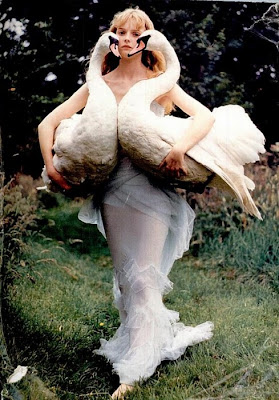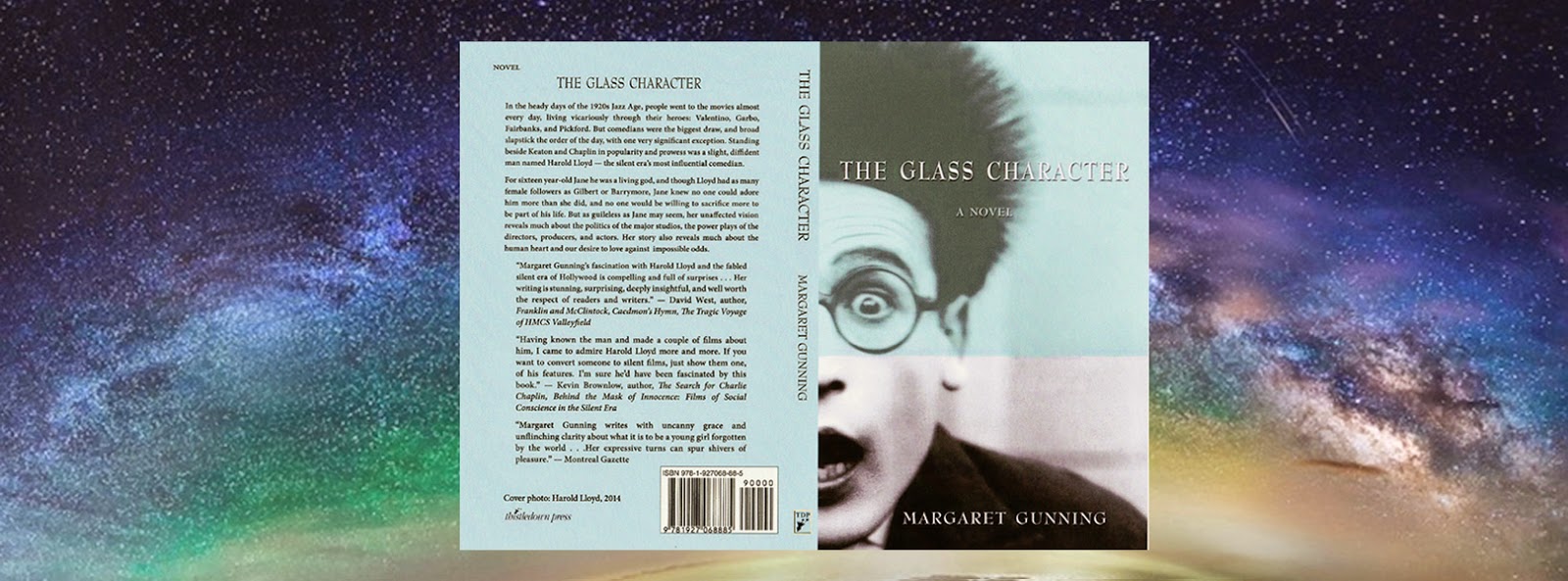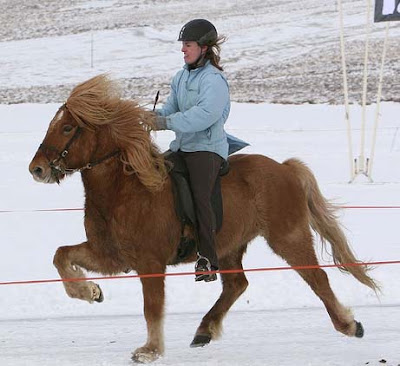The answer to that, my friends, is: sometimes.
I can't say I never complain about my partner - in fact, it can be a sort of competitive sport among women. Natter, natter, natter. Meanwhile, the ones who have really grave concerns - such as, he's hitting her, or hitting on other women - tend to remain silent.
It's a funny thing. Complain, complain, complain - he doesn't understand me, he leaves his socks on the floor, he watches sports with a glazed look on his face, etc. etc.
It dismays me that when women get together, so much of their talk is negative. In fact, they often seem to support each other in their negativity rather than try to build up each other's strengths. By negativity I mean a sort of powerless moaning, which on some level is meant to trigger a certain response, "Oh, yeah, I know what you mean."
Empathy for suffering. Good in small doses, or maybe when you need to offer serious comfort. But sometimes I want to remind these people - hey, did this guy fall from the sky? Do you remember any part of your wedding vows? Forsaking all others, in sickness and in health, etc. etc. Maybe I'm wrong, for God knows I've been wrong before, but that sounds to me for all the world as if you are choosing that person to be your mate, not just for 72 days but forever, or at least as far as mortality will allow.
You picked him, dear, didn't you? Out of all the men in all the gin joints in all the world, you selected this guy to be your mate - you singled him out, and then you were no longer single.
He didn't fall from the sky.
Falling from the sky doesn't just apply to life partners. Jobs are especially prone to the syndrome. OK, I know the economy is lousy and a person can't always just dump a job that hasn't worked out. But in too many cases, there is a sense that the person was relegated to this job without any personal control at all, like being sent to Siberia. And thus the endless complaining.
It's a case of playing the victim. "They" are the culprits, the big bosses, the ones making you suffer. You didn't have anything to do with it at all, did you? And that means you can't do anything about it. Ever.
And in many cases, since this is a relatively free society, out of all the gin joints in all the towns in all the world, you applied for and were hired for this job because you wanted it, which means you chose it. Which means you didn't choose all the rest of them. It was this one. This one. Your cherished choice, the one you whine about day and night, non-stop.
Jobs don't fall from the sky.
I guess while I'm in this mode (never critical, of course), I'll get a few more things off my chest: truisms that drive me crazy, which most people never really stop to look at closely or analyze. They just repeat them like parrots, trusting that it's the "right thing", not just for them but for everyone to live by. And if you don't, it means you're some sort of spiritual spoil-sport.
People love to say that "x" was "meant to be". I don't know what that means. It always applies to a stroke of good fortune, never bad. If a person's whole world collapses, if he or she loses a mate or a job or a home, they never (EVER) say, 'It was meant to be." No, it only applies to those rare times when good fortune rains down from the sky like so many fluttering dollar bills.
Meant to be. Of course! This is somehow attached to "things are exactly the way they are supposed to be," which if applied to the Third Reich would mean we'd all be speaking German (or, more likely, dead). Acceptance is not just preached in recovery circles, it's rammed down people's throats. I once tried to write about this in my "other blog" and was torn to pieces by all those "accepting" 12-step people, who said I belonged in a mental hospital for daring to express an alternate view.
I guess there are no alternate views.
I have some problems with acceptance, yes I do. Women who are being battered by their partners often do things like put makeup over a black eye or come up with stories about falling down the stairs or walking into a wall. Is this a form of acceptance? I don't know. Is she trying desperately to accept a situation which I refuse to believe is "exactly the way it is supposed to be"? I wish someone would explain this to me, because it makes no sense. It makes about as much sense to me as "turn the other cheek" (so you can hit me again).
There are others, less dire but still annoying. I'm not saying I never do them, just that I wish I could stop because they don't make sense to me either.
If it's never happened before, then it will never happen in the future. It's a strange form of magical protection, like crossing your fingers or wishing on a star.
"If I speed/drink/close my eyes while I'm driving, I'll never have an accident because I've never had one before."
"I smoked all my life and never got sick so I won't ever get sick and besides, my great-great-great-grandfather smoked 16 packs a day and lived to be 206".
This is linked to "if I did it before, I can do it again," which is a nice myth that is sometimes even true. "If I recovered from cancer," "if I lost weight," "if I was financially stable" or "sober" or "married" or "happy" before, then I will automatically be that way again.
Nothing is automatic. Nothing is even known. We invent these myths to make ourselves less anxious about the often-violent twists and turns life can take. The people who cling to these axioms have never experienced the gut-sucking sensation of having the bottom drop out of their lives. Or maybe it has happened to them once too often.
OK, one more while I'm here, and it may stem from the acceptance myth. "Critical" is bad. You shouldn't be critical, ever. It means you're being judgemental, which is always wrong.
I beg to differ. Critical means using your powers of discernment to figure out if a situation is right or wrong for you (i. e. getting married: or did he really fall from the sky?). It means a careful assessment of both sides, pro and con. It means being rigorously honest with yourself (which you're also supposed to do in recovery! So how does that jibe with all that propaganda about acceptance?). It's using your God-given human gift of evaluation. Tell me what is wrong with that.

As I bumble and rumble along the often-rocky path of my life, I am beginning to develop a radically new philosophy which more closely fits my current world view.
Anything can happen to anyone at any time.
Do you want to know where I got this philosophy? You'll never guess.
Superman.
I am sure Christopher Reeve used to be one of the special protection gang, until he took a disastrous tumble from a horse and was rendered completely immobile from the neck down.
After years of acclaim largely built on his physical prowess, it was all blown to hell in an instant, along with his previous philosophy (for there was no way in the world his accident and paralysis was "meant to be"!). He was in the trenches, and he stayed that way until he died. He didn't walk again, and for all his public bravery he probably knew he wouldn't.
It was on a talk show, perhaps Oprah, that I heard him make the statement I am increasingly adopting as my personal code, creed, or whatever you want to call it: anything can happen to anyone at any time.
Yes.
We don't have special, magical protection simply because we wish for it or believe in it. God does not play favorites. Things happen, they can happen to anyone. We do have some control, yes (our powers of judgement and discernment, unless the propaganda of acceptance washes them away). We choose certain things, and we can sometimes (but not always) unchoose them, walk away. Reeve didn't choose that accident, even if it was the result of doing something he loved. Though he became an example to the world, demonstrating raw courage in the face of unimagineable adversity, I am sure he would have had his old body back, any day, any way.
So much for that old saw, "there are no accidents". Sure there are. Ask the cops on duty in a snowstorm, the ER nurse, the pastor trying to console the parents of a child killed in a car crash. There are no accidents! How consoling is that? To me it sounds like the most monstrous cruelty, and has a smugness about it, a flavour of "well, it's all in God's plan" that I would like to shove up the nose of the next person who says it.
So how much did Christopher Reeve accept, and how much did he actively resist? I am sure it was a mixture. Whatever dire limitations he faced, he kept on with the struggle. It was in his nature. In a metaphoric sense, he really did fall from the sky, but made of his disaster a daring, even death-defying example of life stripped bare and lived raw. A life set free from the suffocating comfort of illusion.
(I just have to add a p.s. I'm not sure where that J. K. Rowling quote about acceptance came from, but I'd sure like to accept some of what SHE has.)
Dear Sir or Madam, will you read my book
It took me years to write, will you take a look




























































